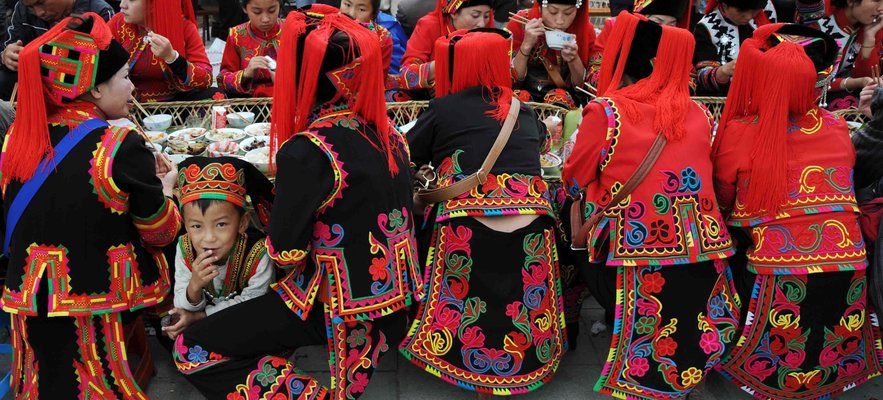A whole village gathering to eat and drink together at the same, endless table! The Long Street Feast (also called Long Table Banquet) is an old tradition of the Hani people to celebrate their New Year (10th month of the lunar calendar).
This year, the Long Street Feast will be celebrated from November 24 to 26 in Honghe prefecture and the program will be even richer than the past years. It's estimated that this year there will be 664 tables that could create the longest table ever seen!
If you haven't been there yet, Honghe prefecture is home to one of the most beautiful landscapes in the world: the Yuanyang Rice Terraces, UNESCO World Heritage Site since 2013. It's a great occasion to visit one of the remotest and most pristine places in China, learn about Hani culture and, of course, taste their delicacies.
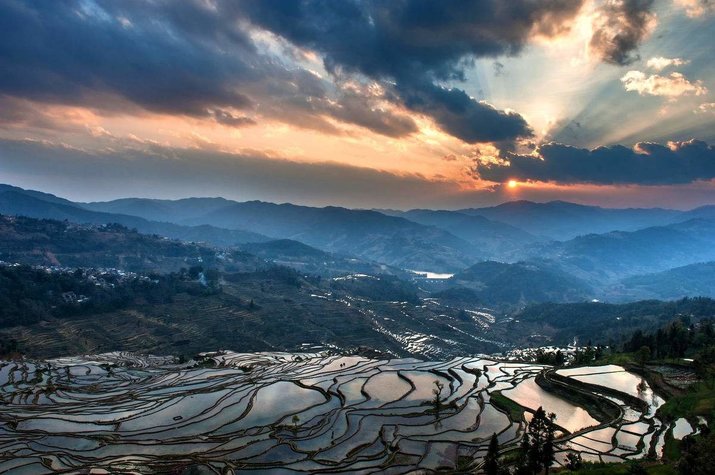
As the name suggests, hundreds of tables will be in the centre of the streets, creating an extremely long, single table.
The most popular banquet will be in Lvchun (绿春), whereas other smaller ones in nearby villages are not open to outsiders.
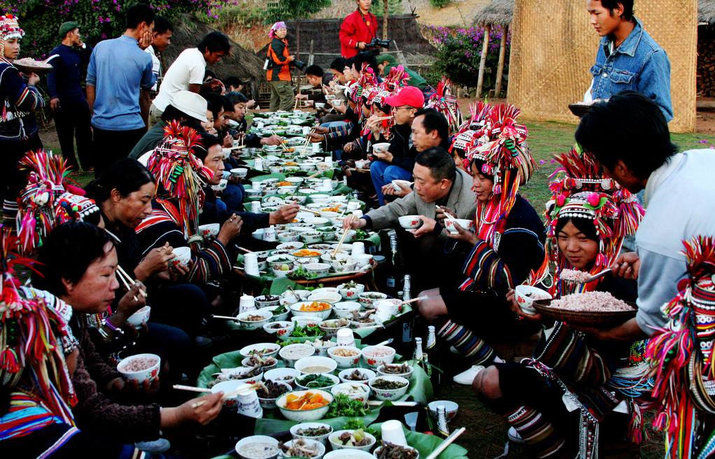
The entrance fee is 180 CNY per person including the banquet or 210 CNY including the banquet and performances.
Local Hani people of all ages, dressed in their traditional colourful costumes, will be showing off their amazing cooking skills and drinking abilities. The whole party will be animated by folk music and dances in a long parades, where you'll get to see typical Hani music instruments and local crafts, including the stunning Hani jewellery.
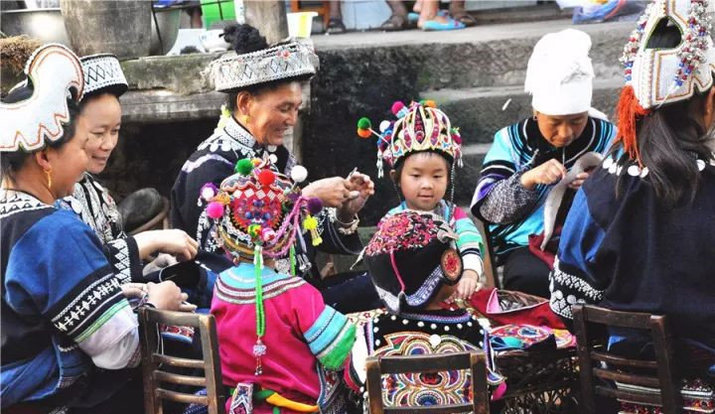
Don't forget to check out their architecture! Traditional houses are built with bamboo, mud, stone and wood; they're called mushroom houses for their peculiar shape that reminds of a mushroom.
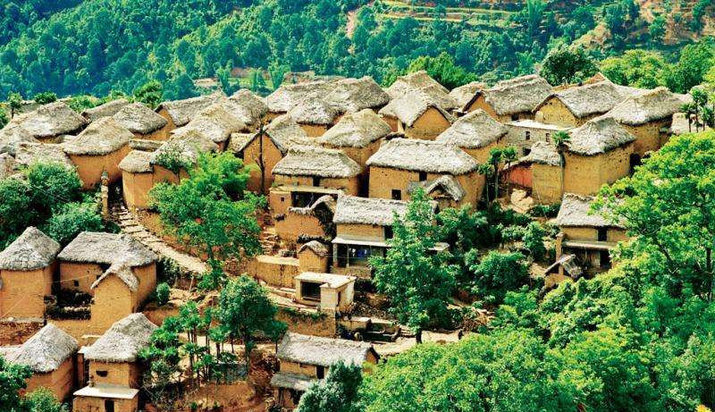
Hani Facts
The Hani ethnic group is one of the 56 officially recognized nationalities of the People's Republic of China, and one of the 54 officially recognized ethnic groups of Vietnam. hani people mainly live in the south of Yunnan Province, between the Red River and the Lancang River, and they count over 1.400.000 people, divided in many subgroups.
The origin of these people is not completely clear yet; what we know is that their ancestors come from an ancient tribe called Qiang, that used to live in the Qinghai-Tibet Plateau. According to some, they share the same origin with Yi and the Lahu ethnic groups.
The Hani people have their own language that belongs to the Lolo-Burmese branch of the Sino-Tibetan language family. These people practice ancestor worship and are polytheist.
Interested in learning more about the Hani people? Come to Yunnan to discover one the most colorful and unique ethnic minorities of China!
Check out our tours, design your own or get in touch with us directly for more info!
Stay tuned on our Facebook, Instagram and Twitter accounts to discover amazing Yunnan!
- 811 reads
- Like this






